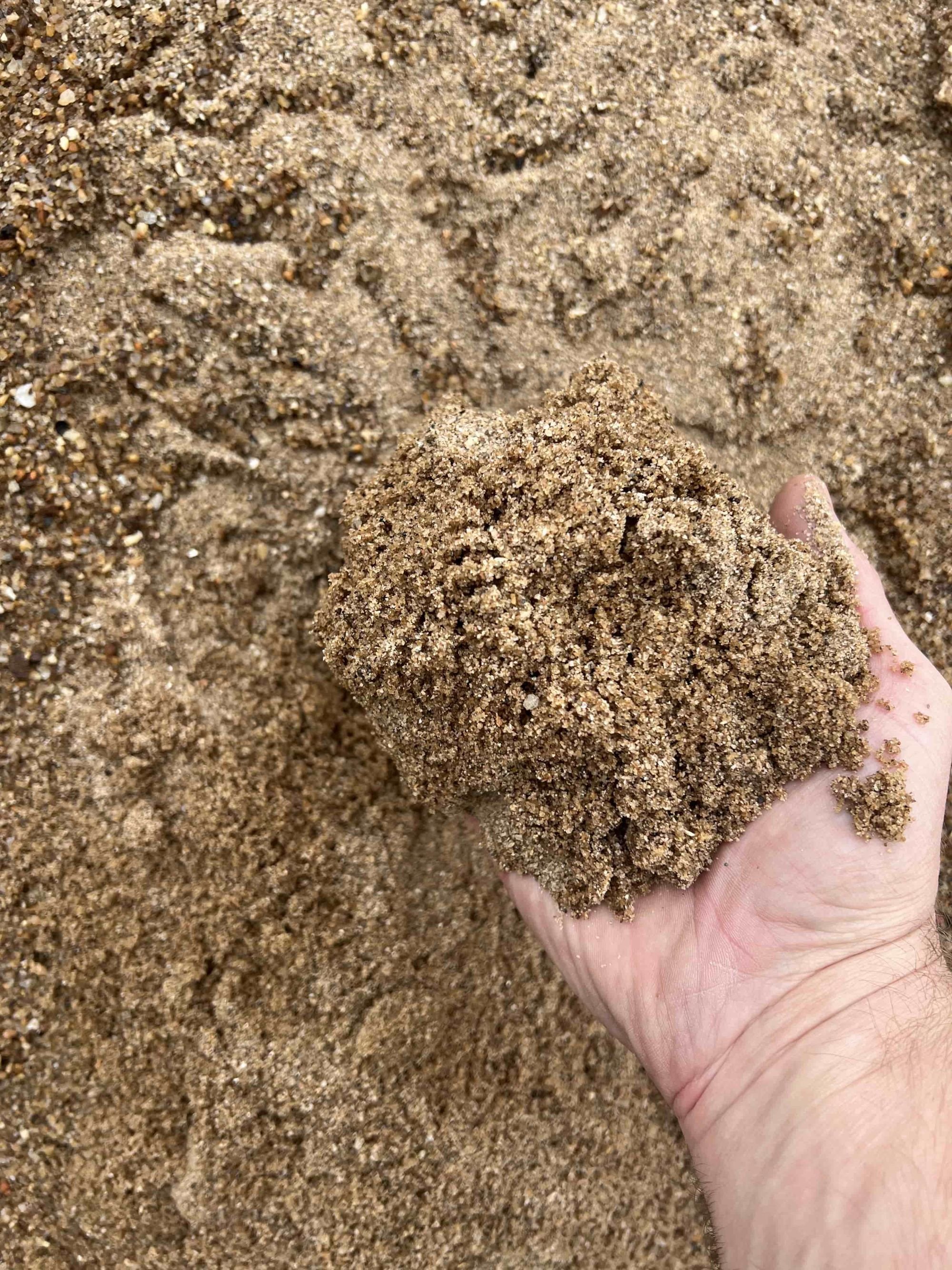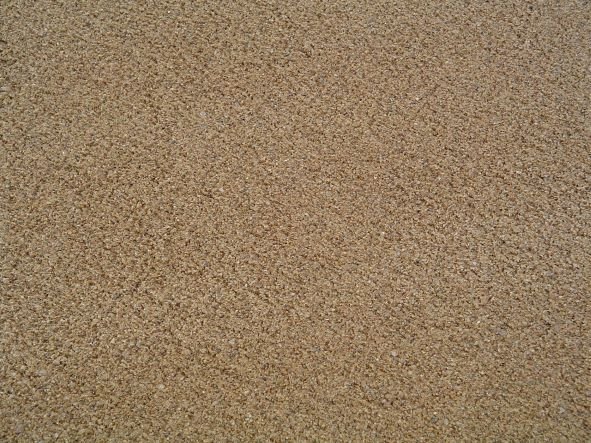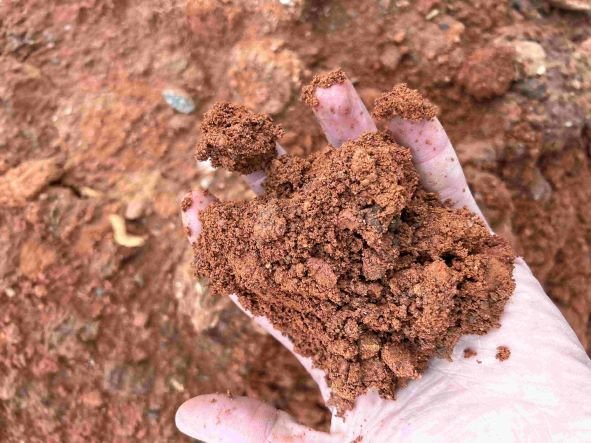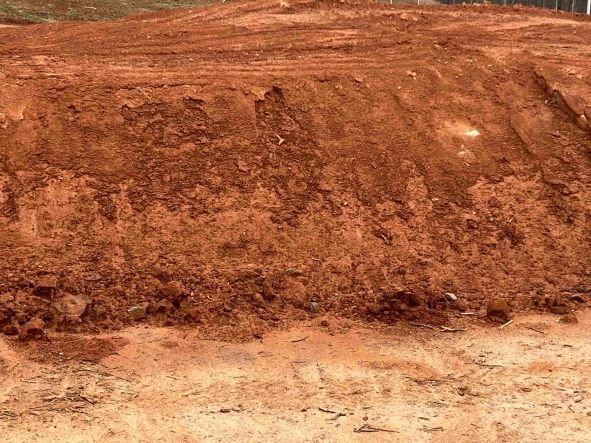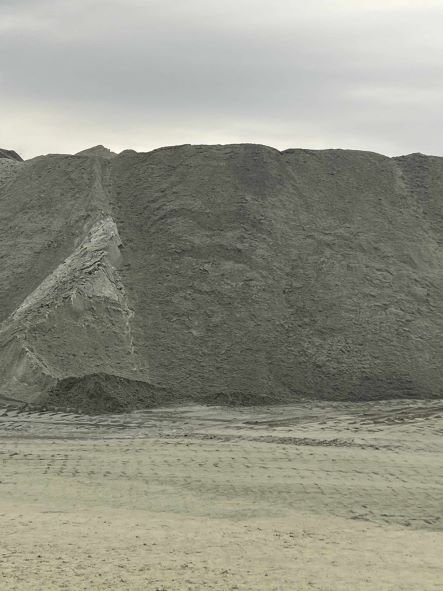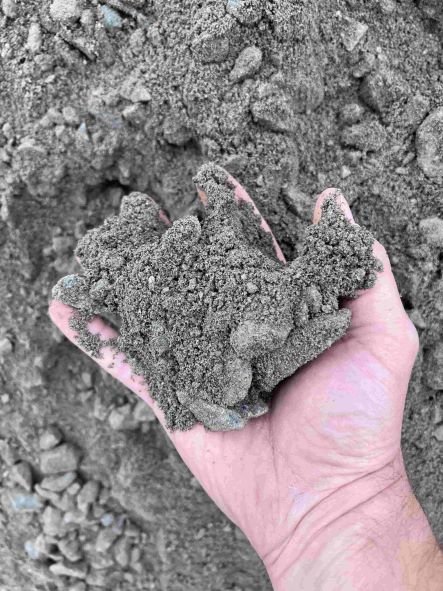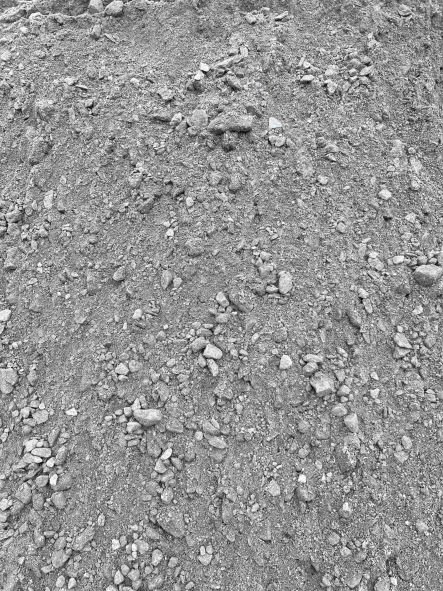How Much Washed River Sand Do I Need?
Assumes Washed River Sand ≈ 22 ft³ per ton. Coverage varies with moisture & compaction.
Sales tax (varies by county) is added at checkout.
About Washed River Sand (Concrete Sand)
Washed River Sand, often referred to locally as Concrete Sand, is a versatile coarse sand widely used throughout Spartanburg, Greenville, Cherokee, Union, and Laurens counties. It is supplied in 15–20 ton tri-axle truckloads and is valued for its drainage, stability, and clean washed texture.
Unlike Masonry Sand, which is fine and smooth, River Sand is coarser and grittier. This makes it a strong performer in concrete mixes, septic systems, horse arenas, and French drains. Its natural grit also makes it a popular choice for recreational uses such as volleyball courts and playground areas where drainage is important.
The washing process removes most clay, silt, and organic debris, creating a sand that bonds well in mixes while staying free-draining. Although commonly called “Concrete Sand,” not all local sources are ASTM C33 certified — making it ideal for general use but not DOT or spec-regulated projects unless documentation is provided.
River Sand is also chosen for landscaping accents, chicken coops, and dog runs, where its light color and drainage make cleanup easier compared to soil or mulch. Its natural variation in grain size helps it resist compaction, giving it a unique balance of stability and permeability.
Local Applications in Upstate SC
Concrete Mixes – Commonly used as coarse sand in general concrete jobs.
Septic & Drain Fields – A clean, free-draining base around pipes.
Horse Arenas & Footing – Popular footing material for equestrian arenas (often blended with Screened River Sand).
French Drains – Allows water movement without clogging.
Pipe Bedding – Cushions utility lines while maintaining drainage.
Volleyball Courts – Clean, gritty surface with good drainage.
Playgrounds – Sometimes referred to as “play sand” when ordered in bulk.
Animal Runs – Used in dog pens and chicken coops for drainage and easier waste cleanup.
Landscaping – Light sand for accent borders or mixing into soil for drainage improvement.
FAQ – Washed River Sand (Concrete Sand) in Upstate SC
What makes Washed River Sand different from Masonry Sand?
River Sand has larger, coarser grains, making it better for drainage, arenas, and concrete bases. Washed White Masonry Sand is much finer, smoother, and better suited for mortar, plaster, and finish work.
What is River Sand used for in Upstate South Carolina?
Common uses include horse arenas, septic system drainage layers, concrete mixes, pipe bedding, and leveling for sports fields.
What’s the difference between River Sand and Screened River Sand?
River Sand is coarser and less uniform, while Screened River Sand is processed for more consistent size, making it popular for horse arenas and riding rings.
Can River Sand be used under concrete slabs?
Yes. It is often used as a leveling base below slabs to improve drainage and reduce cracking.
Can River Sand be mixed with clay for baseball infields?
Yes. Many field builders blend River Sand with clay to create stable surfaces. For a ready-to-use blend, see our Infield Mix Sand.
How does River Sand compare to Crusher Run or Screenings for base work?
River Sand does not compact tightly and is best for drainage layers. For a solid, compacted base, materials like Crusher Run or Screenings are more effective.
Can River Sand be used in septic systems?
Sometimes, depending on county regulations. However, Fill Dirt is more commonly required for mound systems and backfill.
How much does one ton of River Sand cover?
One ton generally covers ~100 sq ft at 2″ depth or ~60–65 sq ft at 3″ depth.
Does River Sand compact?
Not well. It stays loose, which is why it’s good for drainage but not for structural bases.
Is River Sand safe for horse arenas?
Yes. Coarse River Sand provides traction and drainage, but screened varieties are usually preferred for consistency.
Is River Sand good for French drains?
Yes. It allows water to filter while preventing soil from clogging the drain system.
Can River Sand be used for playgrounds or sandboxes?
Yes, but note it is bulk truckload sand, not bagged “play sand.” Its coarser texture may not be as soft as washed masonry sands.
What’s the minimum order for River Sand?
All orders are delivered in 15–20 ton tri-axle loads.
Can River Sand be tailgate spread?
Yes, though spreading may not be as smooth as with crushed aggregates.
How is River Sand delivered?
By tri-axle dump trucks carrying 15–20 tons per load.
Can River Sand be used for sports fields?
Yes. It is often used for leveling and improving drainage on baseball, football, and soccer fields.
Can River Sand be used for concrete mixes?
Yes, it’s often called “concrete sand” when used this way. However, for smoother and stronger mortar or plaster, builders usually prefer regular Mortar Sand.
Is River Sand good for drainage compared to #57 Stone?
River Sand provides good filtration, but clean stone such as #57 Stone drains faster and resists shifting under load.
Can River Sand be used in landscaping beds?
Yes. It’s sometimes used under mulch or decorative stone to improve drainage and prevent soil mixing.
Does River Sand stay in place during heavy rain?
It may wash out on steep slopes, so it’s best for level areas or behind retaining structures.
Is River Sand the same as Concrete Sand?
Yes. In construction, Washed River Sand is often referred to as Concrete Sand.
Disclaimer
Natural products vary in size, color, and texture. Quantities are approximate. See our Disclaimer & Terms of Delivery page for full details.

